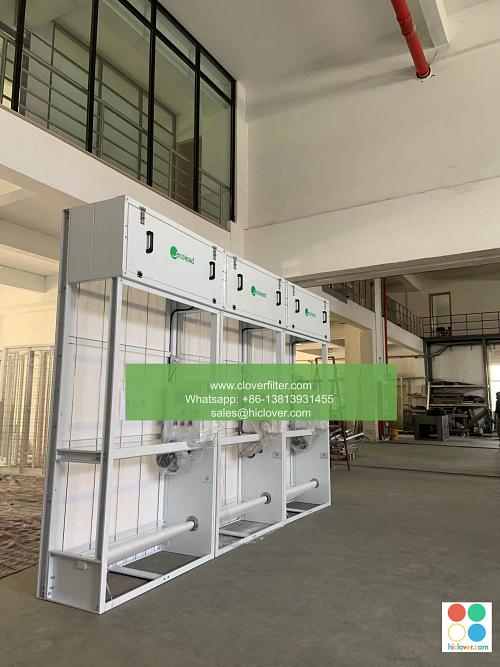The Role of Third-Party Certification in Air Filter Industry Standards

The air filter industry has become increasingly important in recent years, driven by growing concerns about indoor air quality, health, and environmental sustainability. As a result, the need for standardized air filter industry standards has become more pressing. One key aspect of ensuring compliance with these standards is third-party certification. In this article, we will explore the role of third-party certification in air filter industry standards, highlighting various application areas, indoor air quality (IAQ) management, and filtration efficiency.
Introduction to Third-Party Certification
Third-party certification is a process where an independent organization, not affiliated with the manufacturer, tests and verifies that a product meets specific industry standards. In the context of the air filter industry, third-party certification ensures that air filters meet certain air filtration standards, such as those set by the American Society of Heating, Refrigerating, and Air-Conditioning Engineers (ASHRAE) or the International Organization for Standardization (ISO). This certification provides assurance to consumers, manufacturers, and regulatory bodies that air filters are safe, effective, and compliant with industry standards.
Benefits of Third-Party Certification
The benefits of third-party certification in the air filter industry are numerous. Some of the key advantages include:
* Increased credibility: Third-party certification provides an independent verification of a product’s quality and performance, increasing credibility and trust among consumers.
* Improved safety: Certification ensures that air filters meet safety standards, reducing the risk of accidents or injuries.
* Enhanced performance: Certified air filters are more likely to meet filtration efficiency standards, providing better indoor air quality (IAQ) and protecting public health.
* Regulatory compliance: Third-party certification helps manufacturers demonstrate compliance with regulatory requirements, reducing the risk of non-compliance and associated penalties.
Application Areas
Third-party certification is essential in various application areas, including:
* Commercial HVAC systems: Certified air filters are crucial in commercial heating, ventilation, and air conditioning (HVAC) systems to maintain good indoor air quality and prevent airborne disease transmission.
* Industrial processes: In industrial settings, certified air filters are necessary to prevent air pollution and ensure process safety.
* Healthcare facilities: In healthcare settings, certified air filters are vital to prevent hospital-acquired infections (HAIs) and maintain high indoor air quality.
* Residential buildings: Certified air filters are important in residential buildings to improve indoor air quality and reduce allergy and asthma symptoms.
Examples of Third-Party Certification Programs
Several third-party certification programs are available in the air filter industry, including:
* ASHRAE’s Standard 52.2: This standard provides a framework for testing and rating air filter performance.
* ISO 16890: This international standard provides a methodology for testing and evaluating air filter performance.
* UL (Underwriters Laboratories) certification: UL certification provides assurance that air filters meet safety standards and are compliant with regulatory requirements.
Conclusion
In conclusion, third-party certification plays a critical role in ensuring compliance with air filter industry standards. By highlighting various application areas, such as indoor air quality management and filtration efficiency, we can appreciate the importance of certification in maintaining public health and safety. As the air filter industry continues to evolve, the need for standardized certification programs will only continue to grow, driving innovation and excellence in the development of high-performance air filters. You haven’t asked a question or provided any context. Please provide more information so I can assist you better. What would you like to talk about or ask?

